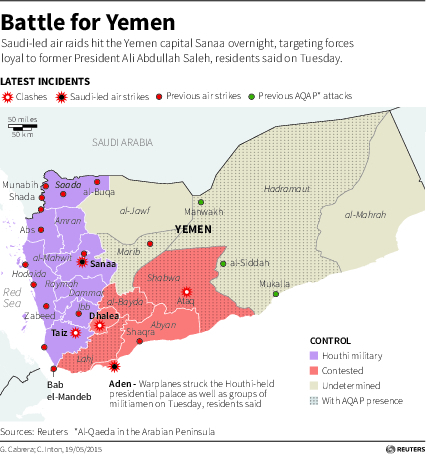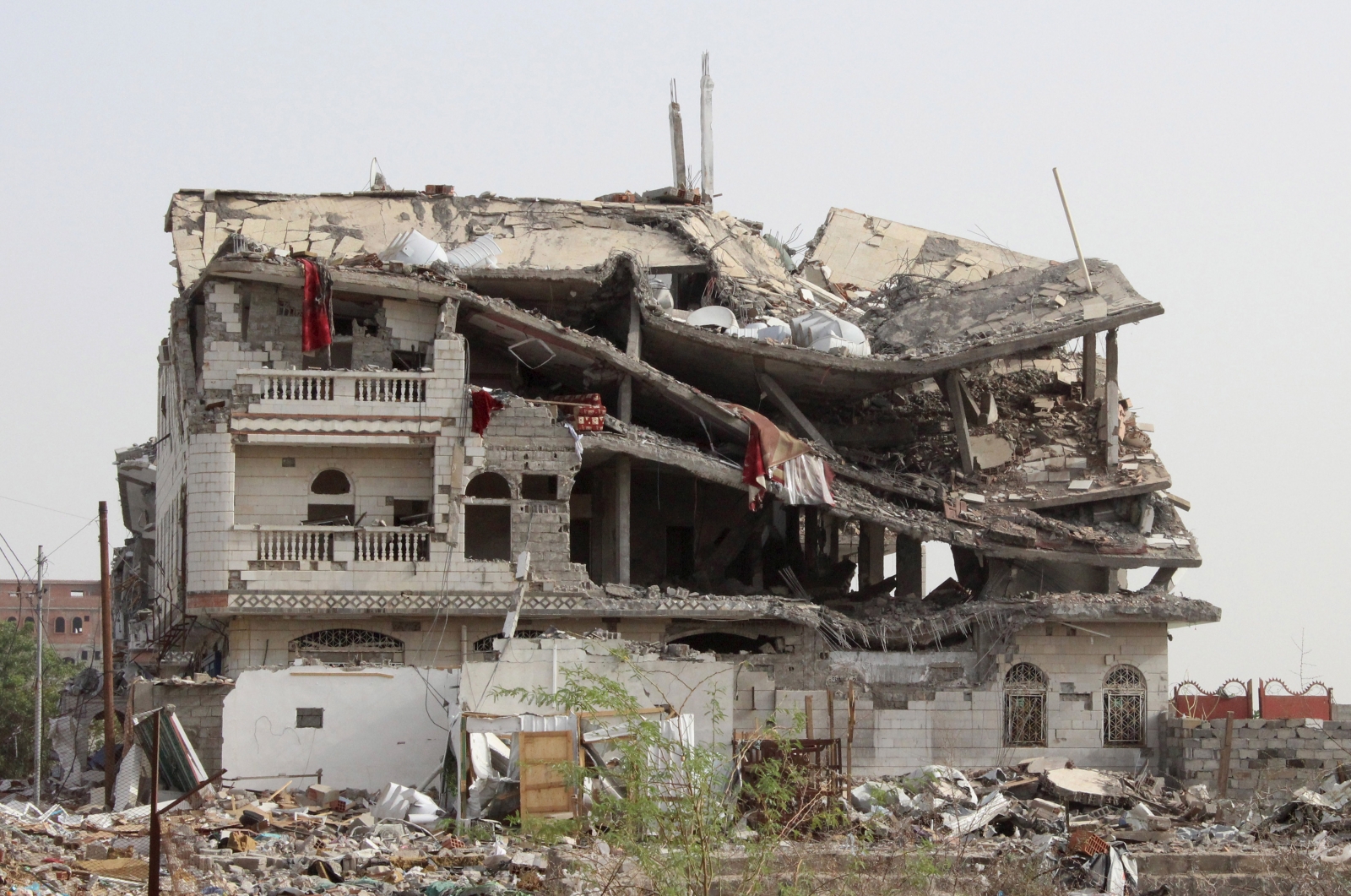One Big Happy Religion
Riyadh's Operation Renewal of Hope isn't giving much hope to the Houthi rebels, backed by Iran who had hoped by now to have completed their Shia take-over of Yemen. Iran, it appears, felt quite confident that since the Arab states had done nothing more than fume and offer financial support to the Syrian Sunni rebels whom Syrian President Bashar al-Assad was brutalizing with chemical attacks and barrel bombs, inciting the Houthis to take Yemen would elicit nothing but teeth gnashing.
They were, quite obviously wrong; they had pushed Saudi Arabia too often, too far for it to continue sitting by, waiting for their great defender, the United States, to intervene. Instead, the U.S. State Department pulled out its personnel, and left Yemen to Iranian proxies to broaden the Islamic Republic of Iran's sphere of influence.
Now proceeds the battle of the Middle East oil titans; the Kingdom of Saudi Arabia against the Islamic Republic of Iran; albeit by proxy.
There was a brief respite with a ceasefire, but it had been violated repeatedly. Saudi-backed forces whose loyalty to exiled Yemeni President Abed Rabbo Mansour Hadi remained intact, were said to have broken the ceasefire, but according to Saudi Arabia that distinction should be worn with pride by the Houthis.
The Houthis and forces allied with them took the southern city of Lawdar last week, giving them the opportunity to bring their forces into Aden from the north. Another portal to Aden, Dhale, saw fierce clashes raging overnight, according to pro-government militia commander Ahmed Harmel. Street battles raged throughout the ceasefire in Yemen's third largest city, Taiz.

The rebels boycotted a meeting where politicians and tribal leaders were holding talks in the Saudi capital, looking for an exit to the crisis.
The truce that Saudi Arabia agreed upon lasted long enough to allow the Houthis to deploy more troops to Aden, where Yemeni President Hadi had declared a temporary capital before fleeing to Saudi Arabia. Sanaa, the capital of Yemen, had been captured by the Houthis soon after initiating their rebellion, last year.
Ali Akbar Velayati, adviser to Iran's Supreme Leader Khomenei, described the Saudi-led airstrikes as "savage". Hardly a stranger to 'savage' treatment of its own population, this will doubtless put Iran in a state of high dudgeon at the United Nations.
Farhan Haq, speaking for the UN, stated that the ceasefire enabled "humanitarian workers dispatched enough food aid to cover one month of food needs for more than 273,000 people".
Shiites are bringing their ire directly to Saudi Arabia, now, where a suicide bomber exploded himself in a mosque in eastern Saudi Arabia while worshippers were in the act of veneration of a seventh-century birth of a Shiite figure on Friday. The local Red Crescent authorities confirmed the death of 19, and 28 wounded.
The suicide bomber had hidden explosives beneath his clothing. He stood among the worshippers during prayer, then detonated his suicide vest while worshippers were emerging from the mosque. This took place in a village called al-Qudeeh, populated by mostly Shiite minorities, citizens of Saudi Arabia, at the Imam Ali mosque.
In 2011, Shiites in the infrastructure-neglected east of Saudi Arabia where resentment against their Sunni overlords is rife, took inspiration from the Arab Spring uprising in Bahrain, to demand greater rights. Their reward was the arrest of hundreds of people, while a counterterrorism court sentenced an outspoken cleric, Nimr al-Nimr to death.
As for the Bahrainian uprising, it was swiftly put down when Saudi military came to their neighbour's defence. It was assumed back then that Iran's incitement was a factor.
Labels: Conflict, Iran, Saudi Arabia, Shiites, Sunnis, Yemen

<< Home